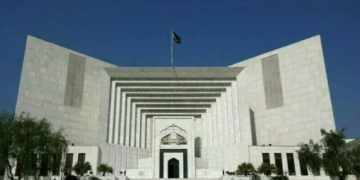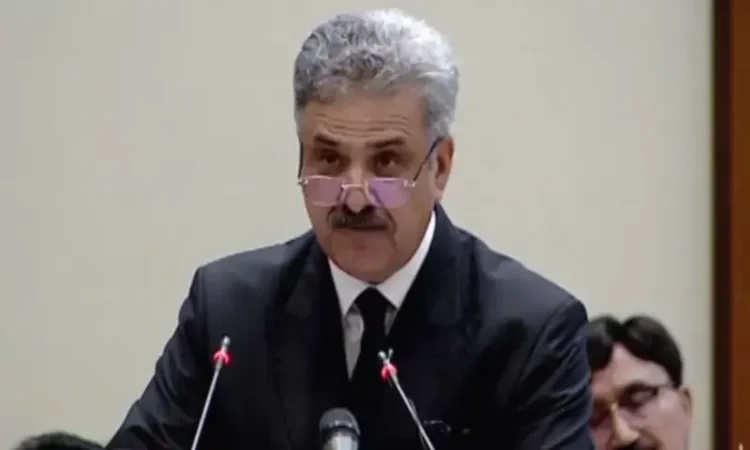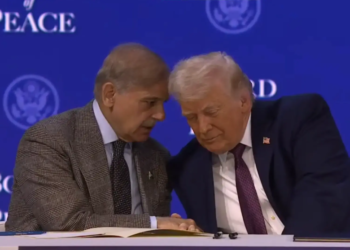By Asif Naveed
ISLAMABAD; As the government moved closer to passing the 27th Constitutional Amendment, a group of former judges and leading lawyers urged Chief Justice of Pakistan (CJP) Yahya Afridi to summon a full court meeting to deliberate on the proposed legislation.
The appeal was made through a letter dated November 9, authored by senior advocate Faisal Siddiqi and endorsed by several prominent members of the legal fraternity, including former Supreme Court senior puisne judge Justice (retd) Mushir Alam, former Sindh High Court judge Justice (retd) Nadeem Akhtar, and nine other distinguished lawyers.
The letter, a copy of which was obtained by Dawn, described the present moment as one of the gravest crises faced by the Supreme Court since its inception in 1956.
It called the 27th Amendment “the biggest and most radical restructuring of Pakistan’s Federal Appellate Court system since the Government of India Act, 1935.”
The signatories claimed that “no civilian or military government in Pakistan’s history has ever attempted to reduce the Supreme Court to a subordinate institution or strip it of its constitutional jurisdiction” as the proposed legislation allegedly intends to do.
They appealed to Chief Justice Afridi to call a full court meeting to review and respond to the proposed changes. “We fully expect your Lordship to convene a full court to discuss the Amendment and convey the judiciary’s considered input to the federal government,” the letter stated.
The authors asserted that the Supreme Court has both the right and responsibility to share its views on any constitutional change, particularly one that redefines its powers and structure.
They warned that the 27th Amendment could fundamentally alter the Supreme Court’s character, authority, and constitutional role as the ultimate arbiter of justice.
The letter stressed the urgency of the matter, pointing out that the proposed amendment might be passed by November 11 or soon after. The authors further cautioned that if the Chief Justice chose to remain passive “under the pretext of neutrality or noninterference,” it would mean “reconciling to becoming the last Chief Justice of Pakistan” and witnessing “the demise of the Supreme Court as the nation’s highest judicial body.”
The letter concluded by requesting that, given the public importance of the issue, it be released to the media.
The letter’s signatories included former attorney generals Muneer A. Malik and Anwar Mansoor Khan, former Supreme Court Bar Association (SCBA) presidents Abid Shahid Zuberi, Ali Ahmad Kurd, Muhammad Akram Sheikh, and Amanullah Kanrani, as well as senior Supreme Court advocates Khwaja Ahmad Hosain, Salahuddin Ahmed, and Shabnam Nawaz Awan.
Several of these figures have previously opposed constitutional changes to the judiciary. Zuberi, Sheikh, and Salahuddin were among those who challenged the 26th Amendment in the Supreme Court, while Ali Ahmad Kurd and others launched protest movements to defend judicial independence.
Muneer Malik and Khwaja Hosain also represented the Balochistan High Court Bar Association and veteran politician Afrasiab Khattak in that earlier case, arguing that the 26th Amendment undermined judicial autonomy.
Proposed Judicial Restructuring under the 27th Amendment
The Constitution (Twenty-Seventh Amendment) Act, 2025 — recently approved by the federal cabinet and tabled in the Senate — seeks sweeping changes to the judicial framework, particularly through the creation of a new Federal Constitutional Court (FCC).
The FCC would assume jurisdiction over all constitutional matters, and its decisions would be binding on all courts, including the Supreme Court itself — a provision that has alarmed jurists who view it as a demotion of the Supreme Court’s role as the apex judicial forum.
The amendment builds upon the 26th Amendment, which had already introduced constitutional benches — a move still under challenge before the Supreme Court.
Sources indicate that the government has begun preliminary preparations for the FCC’s formation. Justice Aminuddin Khan, head of the current Supreme Court Constitutional Bench, is being considered for appointment as the FCC’s chief justice.
Other names reportedly under consideration include Justices Hasan Azhar Rizvi, Musarrat Hilali, Aamer Farooq, and Ali Baqar Najafi from the Supreme Court; Justice K.K. Agha of the Sindh High Court; and Chief Justice Rozi Khan Barrech of the Balochistan High Court.
The FCC will be created as a new institution under Chapter 1A of the Constitution, with judges serving until the age of 68 — three years longer than the current retirement age for Supreme Court judges. The FCC chief justice will serve a fixed three-year term.
The amendment also grants the president new powers to transfer judges between high courts upon recommendation from the Judicial Commission of Pakistan (JCP). Any high court judge refusing such a transfer will be deemed retired.
Under Article 189, the Supreme Court would now handle only civil and criminal appeals, while the FCC would assume exclusive jurisdiction over constitutional matters, including inter-provincial disputes, fundamental rights enforcement, and presidential references.
Legal experts have warned that the proposed structure could effectively divide judicial authority, creating two parallel apex courts and fundamentally altering Pakistan’s judicial hierarchy.








































































